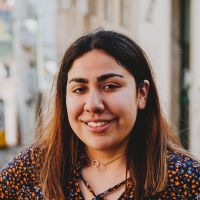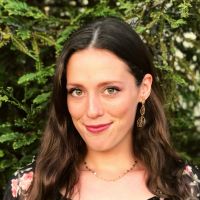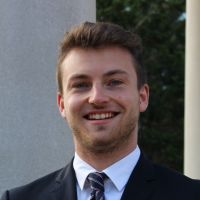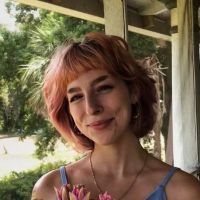Victoria Basulto graduated from Colgate University with a dual degree in History and English, and she will be attending the University of Cambridge to pursue an MPhil in World History. Her research will focus on U.S. foreign relations with Latin America, specifically Central America. While at Colgate, she discovered her passion for environmentalism and Latin American history. She became involved in the activist group Students for Environmental Activism, where she served as Co-President and led a committee tasked with creating educational programming to help students implement eco-friendly behavioral changes in their lives. Victoria incorporated her interest in environmentalism in her studies by centering her historical research on environmental movements, like those led by indigenous communities seeking land reform in Latin America. She became interested in history education because she realized how history shapes society based on representation or failure to represent certain groups of people. She developed this interest with the National Abolition Hall of Fame and Museum (NAHOF), where she created two online history-centered educational programs, "Black History Matters 2021" and "Black History in Upstate New York''. These programs highlight often-obscured historical narratives of Black Americans in U.S. history. Victoria is now a member of NAHOF's cabinet and remains committed to amplifying marginalized stories in the teaching of history.
Jennifer Bitterly is a researcher and journalist focused on environmental conservation, migration, gender equality and LGBTQ+ rights. Her work spans various disciplines, from journalism and literature to law, research and humanitarian efforts. She is currently based in Colombia, where she has collaborated with various NGOs, managed press relations and communications for the oldest film festival in Latin America, and has supported the feminist collective Ladysmith with research on gender-based violence and gender-responsive social protection including through strategic engagement, mixed-methods analysis, and partnership development. Her professional experience in advocacy and investigation stems from her commitment to connecting grounded research, qualitative methods and storytelling to programming and policy-making. Her greatest milestone is her postgraduate Thomas J. Watson Fellowship, where she explored the concept of rebuilding home among displaced populations in six countries through a year of independent, purposeful investigation. Other distinctions include two All-American Attorney awards in mock trial national championships, Phi Beta Kappa, various accolades at graduation, and fully-funded fellowships and semesters abroad in Ecuador, Argentina, and Spain. She holds degrees in Philosophy and English from Rhodes College, which catalyzed her interest in examining how theory should be practically applied and how narratives can compel action.
Elan Fox graduated from The George Washington University with a degree in International Affairs, a concentration in International Development and a minor in Geography. He is committed to advancing local innovations across Latin America and ideas that disrupt the status quo. For his internship with Response Innovation Lab, Elan worked with Ugandan and Somalian entrepreneurs to scale their humanitarian innovations through strategic marketing. As a leader in AIESEC, an international nonprofit, Elan collaborated with NGOs in Latin America and sent US volunteers on exchange projects. During his study abroad in Buenos Aires, Elan used GIS to map out the growth of informal settlements along the capital city’s outskirts. Originally from New York City, Elan hails from an Israeli-American household. In Israel, Elan served as a field organizer for the center-left political party Yesh Atid and has worked with human rights groups to curate educational programming on grassroots peace activism. An ambitious trilingual, Elan is excited to work with entrepreneurs with Endeavor Mexico for his PiLA fellowship, contributing to sustainable economic development.
Ky Miller’s drive to engage communities in conservation and support environmental and social justice has been shaped by her academic concentrations in Anthropology and Environmental Studies at New College of Florida. In her community, Ky has affected positive social change as Vice President of the Council of Green Affairs and as Compost Program Coordinator through dynamic, participatory environmental projects. Abroad, in summer and fall 2020, Ky put her commitment to equitable conservation and ecological justice into practice when she conducted community-based participatory research into COVID-19’s impacts on ecotourism, conservation and community livelihoods in Monteverde, Costa Rica, which provided the basis for her Honors Thesis and aided the community’s emergency response. This year, outside of PiLA, Ky will be working with the Institute for Tropical Ecology and Conservation in Bocas del Toro, Panamá to contribute to U.N.-funded reforestation and citizen science projects in surrounding reserves. In partnership with PiLA, Ky will be collaborating with Partners for Andean Community Health to develop an e-learning program to support PACH's future volunteers and interns. Ky is elated to have the opportunity to help engage future PACH partners in health equity issues and to further explore the intersections between health and the environment.




